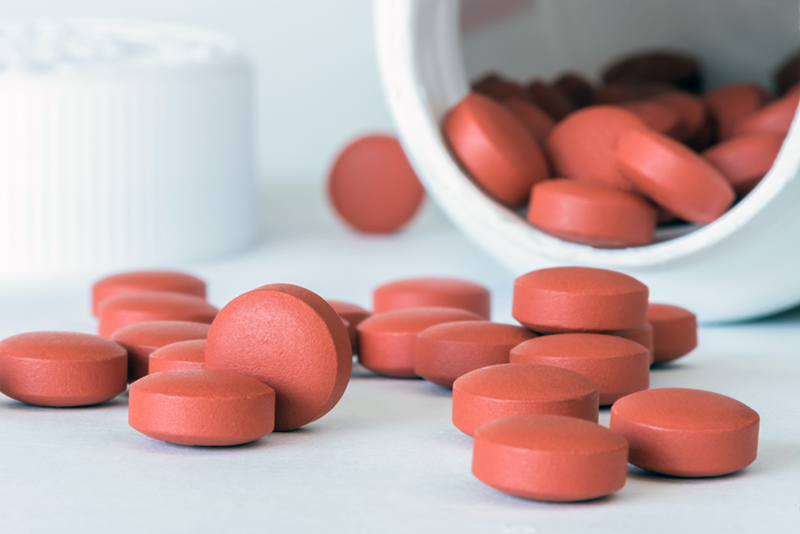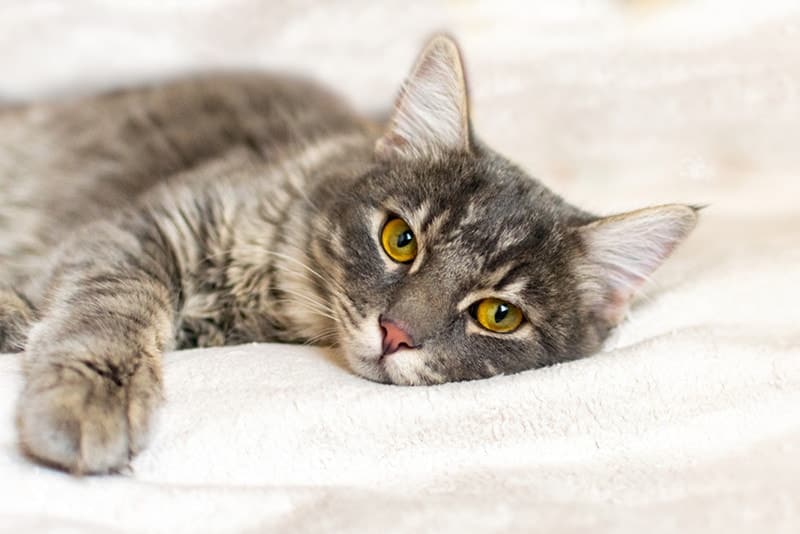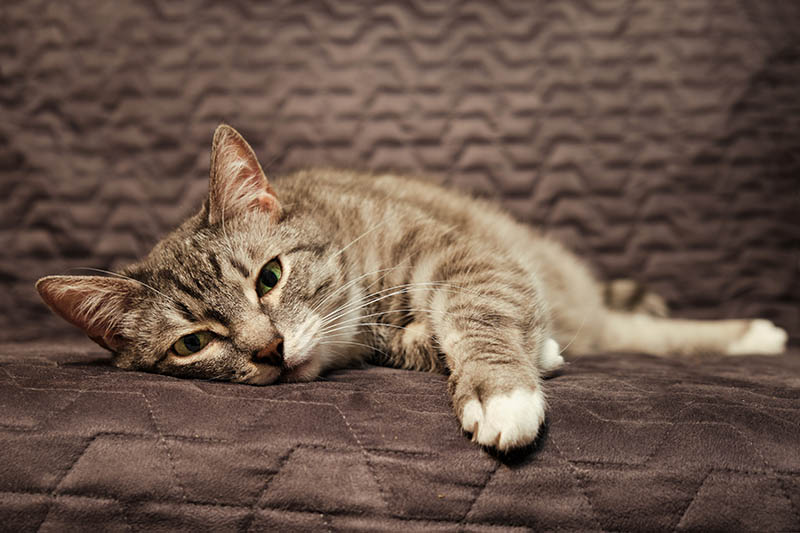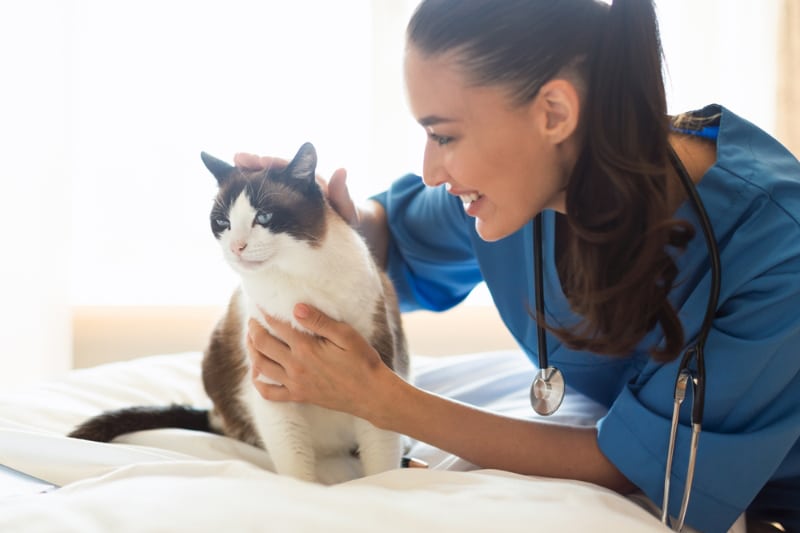Ibuprofen is a commonly used non-steroidal anti-inflammatory in humans. It might be purchased over-the-counter and is commonly used to treat fever, pain, head colds, swelling, and menstrual discomfort. Unfortunately, ibuprofen could be very harmful to cats. It should never be given as a pain relief medication, and should you suspect your cat has managed to eat ibuprofen, prompt veterinary attention must be sought.
This text will explain and examine ibuprofen toxicity in cats, including why it’s so dangerous, what might be done in case your cat has eaten it, and what signs try to be waiting for.
What’s a Non-Steroidal Anti-Inflammatory Drug (NSAID)?
Ibuprofen belongs to a category of medicines generally known as non-steroidal anti-inflammatory drugs (NSAIDs). This medication blocks a few of the pathways within the body that produce inflammatory mediators. Nevertheless, these same pathways are also accountable for many normal body functions, including regulation of the digestive tract, kidneys, liver, and blood clotting aspects. In consequence of this, an overdose of an NSAID could cause ulceration of the stomach, impaired kidney function, damage to the liver, and an inability to clot blood.
 Image Credit: Michelle Lee Photography, Shutterstock
Image Credit: Michelle Lee Photography, Shutterstock
Why Is Ibuprofen Harmful to Cats?
Ibuprofen is incredibly dangerous in cats. For the average-sized cat, as little as one standard ibuprofen tablet (200mg) might be harmful.
The easy answer here is that cats aren’t people. They’re, after all, much smaller in size. Moreover, their ability to metabolize, or break down, various drugs, including ibuprofen, is significantly reduced in comparison with people. When pharmaceutical firms test medications comparable to ibuprofen, they test the medication on people. This establishes a security margin—in other words, how much of the medication might be consumed without causing any negative effects. This safety margin doesn’t transfer across species. Indeed, the protection margin for ibuprofen is far smaller in cats than it’s in humans.
Why Do Cats Eat Ibuprofen?
The short answer is, we don’t know. Veterinary clinics and The Animal Poisons Hotline receive many calls yearly in regard to cats which have eaten ibuprofen. In a few of these cases, owners could have given their cat ibuprofen to assist with a painful condition without knowing the potential toxicity it might probably cause. In other situations, owners have found a packet of ibuprofen that has been chewed up.
Some ibuprofen capsules or tablet preparations could have a sweet-smelling coating that appeals to cats. Other times, it could just be the cat’s inquisitive nature that leads them to try some ibuprofen.
 Image Credit: Ro_ksy, Shutterstock
Image Credit: Ro_ksy, Shutterstock
Signs of Ibuprofen Toxicity in Cats:
Most ibuprofen toxicities in cats cause irritation and ulceration of the gastrointestinal tract. Owners may notice:
- Reduced appetite
- Vomiting
- Diarrhea
- Pale gums
- Dark tarry stools (consequently of digested blood)
- Abdominal pain
More severe cases of ibuprofen toxicity result in acute kidney disease, liver disease, and, in extreme cases, neurological disease. Owners may notice:
- Increased thirst and urination
- Decreased thirst and urination
- Yellow discoloration of the gums, skin, and whites of the eyes
- Tremoring and seizures (rarely)
 Image Credit: Zhuravlev Andrey, Shutterstock
Image Credit: Zhuravlev Andrey, Shutterstock
Treatment of Ibuprofen Toxicity in Cats
There are three important ways vets will treat ibuprofen toxicity in cats:
- Decontamination. That is the technical term for making a cat vomit. This might be attempted inside 2–3 hours of ibuprofen ingestion to empty the stomach. Some “rapid-release” ibuprofen formulations may already be absorbed by the point vomiting is induced. Don’t induce vomiting in your cat without supervision by a vet.
- Supportive medications. Activated charcoal is commonly given to assist “mop up” any undigested ibuprofen before it has a likelihood to be absorbed into the bloodstream. Other medications, just like antacids, are used to guard the liner of the stomach from ulceration. Pain relief and anti-nausea medications could also be warranted.
- Fluid therapy. Fluids could also be given under the skin or intravenously depending on a cat’s needs. Some cats may require hospitalization for fluid therapy and continuous monitoring. If kidney damage occurs, ongoing fluid therapy at home (given under the skin) could also be really helpful.
Blood and urine tests are sometimes utilized by veterinarians to evaluate the toxicity initially or to collect a baseline database. These same tests can be used as a guide 2–3 days later to make sure no further injury to organs has occurred.
Prognosis for Cats After Ibuprofen Ingestion
The prognosis for cats with ibuprofen ingestion is variable. It will depend on the dimensions and health status of your cat, the quantity of ibuprofen ingested, the time at which ingestion was detected, and the treatment regimen undertaken.
Having said that, most cats that eat ibuprofen are in a position to make a full recovery with appropriate care.
 Image Credit: Prostock-studio, Shutterstock
Image Credit: Prostock-studio, Shutterstock

Conclusion
Ibuprofen is a typical household medication that is incredibly harmful to cats. While its use is mostly considered very protected for people, a single tablet could cause problems for our feline friends. Gastrointestinal and kidney injury are commonest, and treatment for these problems may require admission to a veterinary hospital.
If you will have unintentionally given your cat ibuprofen, or suspect that your cat has gotten into ibuprofen, contact your veterinarian or nearest vet emergency center promptly.
Featured Image Credit: luchschenF, Shutterstock

